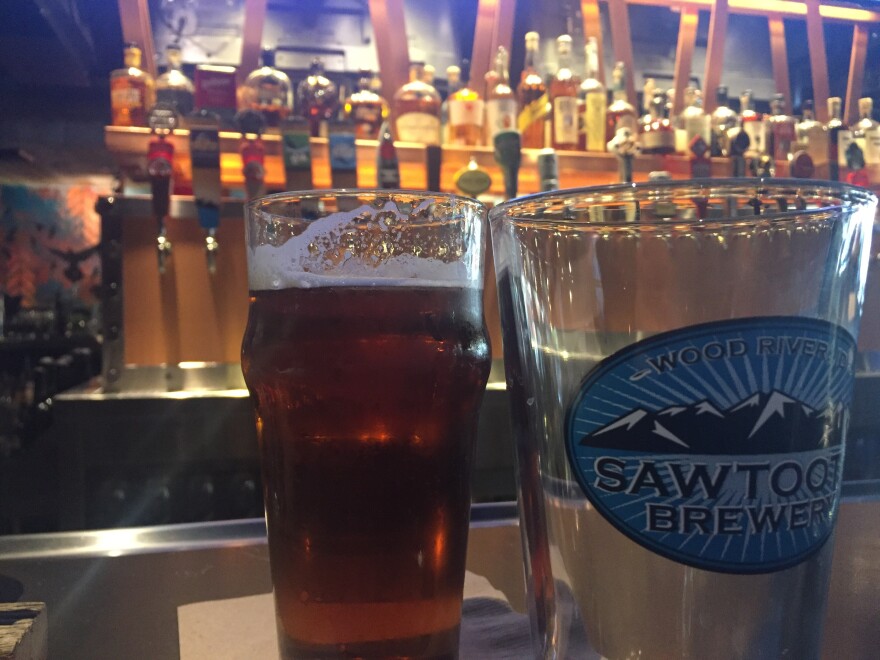The 2017 Tax Cuts and Jobs Act lowered federal excise taxes, also known as sin taxes, that alcoholic beverage makers pay on their finished product. That reduction was temporary and expires at the end of this year, meaning beverage makers in Idaho are preparing for higher tax bills.
At Boise’s Telaya Winery, grapes are sorted by hand onto a conveyor belt heading to the destemmer. Owner Earl Sullivan said the big bunches of fruit need to be pulled apart or they can explode in the machine.
“It’s a product of the freeze we just had a couple days ago,” he said, “We’re just having to work a little bit harder to make sure the fruit is as clean as we want it.”
Sullivan is also the chair of the Idaho Wine Commission Board. Today’s grapes are processed and barreled for aging, but won’t be bottled and taxed as wine for two years. That delay can make tax law changes difficult to prepare for.
“We spend several hundred thousand dollars per year on production for two years down the road, so the most likely impact in the short term would be a reduction in production,” Sullivan said. He also noted the winery has beefed up its hiring and marketing in the last two years while the tax rates have been lower.
The tax rate is based on how much makers produce, and for wine, how strong it is.
For example, on wines above 14% alcohol, which includes many reds, a winery the size of Telaya could have seen a 90% reduction in federal taxes each year.
The reduced excise tax provision impacts the beer and spirits industries as well, all of which use grapes, barley and hops from Idaho farms. For the past two years, breweries have paid $1.75 less tax per keg of beer.
Bryan Garcia-Brown is head brewer at Edge Brewing in Boise. He said a direct impact for him will be a tighter budget for ingredients.
“What it likely ends up meaning is that I have to produce less expensive, less exotic beer styles,” he said. “I lose my ability to innovate the way that I’d like to.”
For breweries putting beer in six-packs, the tax decrease was helping offset increased tariffs on aluminum cans.
The smallest producers won’t feel a huge pinch. Barbarian Brewing’s Bre Hovley said the extra tax would still be one of the smallest bills she paid, but might eat into her marketing budget.
Other breweries said they would likely delay equipment purchases or forego salary increases.
According to production numbers from the Brewer’s Association, Idaho’s largest brewery is owned by California-based Mother Earth Brewing. A spokesperson said it had no plans to let up on continued growth at its production facility in Nampa, regardless of a tax increase.
Idaho’s congressional delegation publicly supports legislation extending the tax break, but those bills aren’t likely to the floor until the very end of the year. Even then, a senate policy staffer said it would likely be packaged together with other bills aimed at extending expiring tax provisions, and there’s no guarantee every bill inside a larger appropriations package would have the same bi-partisan support the craft beverage modernization bill does.
In the meantime, Idaho producers are planning for higher taxes, but hoping for continued relief.
“You have to function under the attitude that that change is probably going to expire,” Garcia-Brown said, “and hope to high hell that it doesn’t.”
For more local news, follow the KBSX newsroom on Twitter @KBSX915
Copyright 2019 Boise State Public Radio




